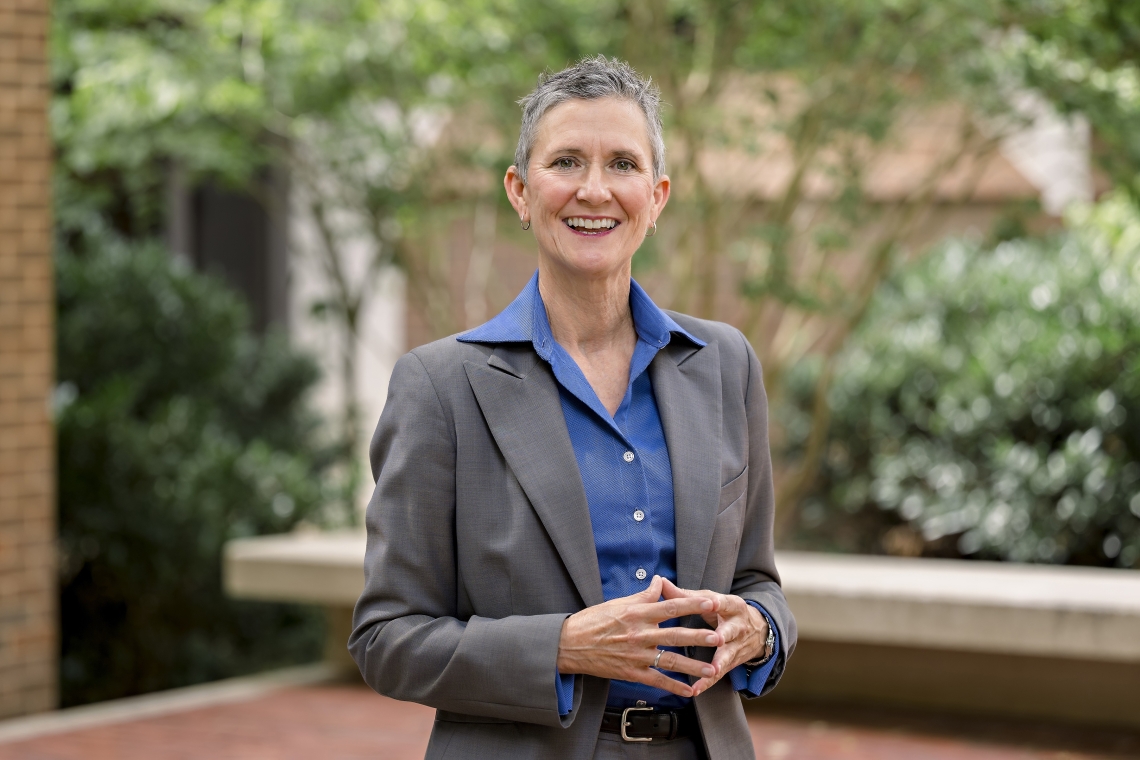News & Events

“I received a scholarship that helped me in law school. It changed the trajectory of my life, and I am absolutely committed to paying it forward.” W&L Law School Dean Melanie Wilson
Attending law school is difficult enough, but for first-generation students, there are additional roadblocks to overcome. One of the most daunting is the prospect of accumulating significant debt.
Melanie Wilson began her tenure as Dean of Washington and Lee’s Law School in July 2022. She immediately recognized the importance of scholarships and financial aid as crucial components to attracting top students from a wide range of backgrounds. To that end, she has established the Endowment for First Generation Success in Law to provide scholarship assistance for first-generation students.
As a first-generation student herself, the endowment is very personal for Wilson. “Neither of my parents had the means or opportunity to go to college,” Wilson said. “I received a scholarship that helped me in law school. It changed the trajectory of my life, and I am absolutely committed to paying it forward.”
Dean Wilson noted that acquiring less debt means graduates will have more flexibility to practice in fields that may not be as lucrative but are more fulfilling. “It is so important to be able to provide grants and scholarships to students so that upon graduation, they have the option to choose not only high-paying corporate and law firm positions, but also work in nonprofit organizations, government agencies and other public interest work,” she said.
In 2022–2023, 12% of W&L Law School students were the first generation in their families to attend college. Thanks to the philanthropy of alumni and friends, the average law school debt for members of W&L’s Class of 2022L was $105,520, much less than students at comparable private law schools. Ninety percent of Law School students receive some form of financial aid. There are 122 named scholarships, with an average scholarship award of $27,500.
Taylor Roberson ’24L helped establish the First-Generation Student Union at the Law School last year and served as its inaugural president. “In my family, the thought of debt was a huge no-no,” said Roberson. “My generous scholarship helped alleviate some of that concern.”
Roberson started a similar affinity group as an undergraduate student at the University of Alabama, but she found there were different issues facing law students. She noted that many first-generation students come from homes where there are no professionals to model ways to network or to prepare polished applications. “Law students need to learn about managing student loans and navigating finances once they start earning money,” Roberson said. “Also, they need to learn how to leverage the experience they already have.”
Law School faculty and alumni wasted no time jumping on board with their support of the new student union. When the formation of the group was announced, Roberson immediately received 30 emails from faculty who wanted to offer their expertise, and students also got involved. “We were able to pair 1L students with 2L and 3L students to do mentoring based on what they needed,” she said. “It also gave them someone to reach out to with questions. W&L already has a lot of programs to help first-years, but in this group, they don’t have to feel embarrassed to ask for additional help. The first-generation student entering law school has already proved themselves to be resilient and resourceful. They just don’t have the connections others might have.”
Roberson reached out to W&L Law alumni across the country for advice when she was applying for internships the summer between her first and second years. In total, she talked to 85 alumni who helped her hone in on her job interests. “I was very aggressive,” she laughed. “I just sent cold emails, and many of the alumni responded. I asked questions, and if the interview was going well, I would ask how they liked their work. In the end, I had a clear idea of what my life would look like in different cities.”
Dean Wilson is grateful for the level of alumni engagement as donors, adjunct faculty and student mentors. “They make a real difference,” Wilson said. “Our close-knit culture brings people back, and it comes from the pride of our graduates who want to convey what a special place this is.”